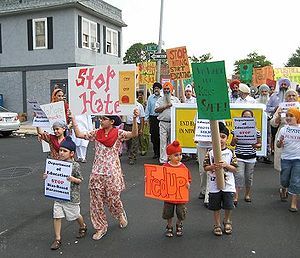Bullying: Series Continued.
- #144 Leave Space In Your Beliefs To Grow
- #163 ”He’s Never Hit Me.” Abuse.
- #251 Just Ordinary Bullying – The Bully and The Bullied
- #253 How to Be A Friend To Yourself When Thinking About Your Bully
- #254 Free To Do Self-Care, Despite Our Bully
- #255 Bullying That Includes Life-Threatening Behavior.
You are saying this to provoke me!
Paula was angry. Her hold on her composure was tenuous. I backed off before she lost her cool. No one feels good when they do that. If she felt this way around this mostly unthreatening environment, she must be suffering its effect on her relationships or lack thereof in her other life environments. No one feels good when they can’t trust themselves.
I am not going to sit here and take this from you! You are doing this on purpose!
And Paula walked out. That was it. That was all I got. For now, my opportunity to help was over and I was left to wonder after her.
1. In taking care of ourselves around anger, the first step is to ensure our personal safety. Deescalate if possible the tension. But most importantly, do what we must to be safe. If we have to leave to do that, than we leave and it is over. I commend Paula for leaving before she acted out on her anger. That is good coping going on.
For myself, if she had continued to escalate, I could call for help or leave.
2. The next step, (exclusively per Dr. Q), for those experiencing the anger… Well there are many, and if it is happening often, should probably include medical interventions along with other considerations of her biopsychosocial self.
For those subjected to the anger, it will be most friendly to themselves to process their own emotional response to the anger-trigger. “Do I feel angry too? Do I think I am responsible for her emotions? Do I think what went down here is about me?” Get our personal out of the stuff that isn’t. Why make it about us if that isn’t true? It is another thing if we were poking her with a skewer or had initiated our own emotional diarrhea before she did. But that just takes us back to step #1.
3. Finally, for the “victim,” take some time to tease out if we are putting ourselves in a position that isn’t safe repetitively. “Is there a pattern? Do we find ourselves in the space of anger or other negative emotions often? How often? Do we allow this person to treat us in a negative way that we would never allow anyone else to treat us?” The answer to that will be telling about our self-friendliness.
Self-Care Tip #259 – In the space of anger, remember you are a friend to yourself.
Questions: What patterns, if any, do you see in your life, or someone you love re: anger? What empowers you towards self-care in the space of anger?
Related articles
- Never Be Bullied (a skirt a week)
- What are the signs of a “bully-victim”? (education.com)
- What Helps Children Cope with Bullying? (education.com)
- Is it OK to Cry at Work? (blogher.com)







